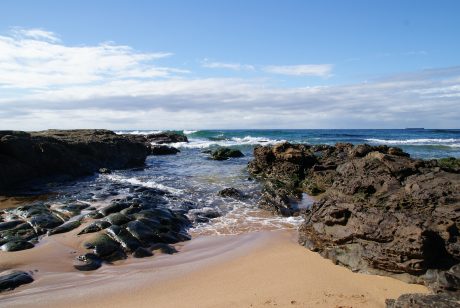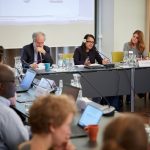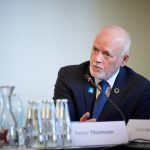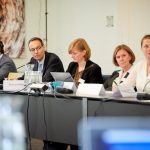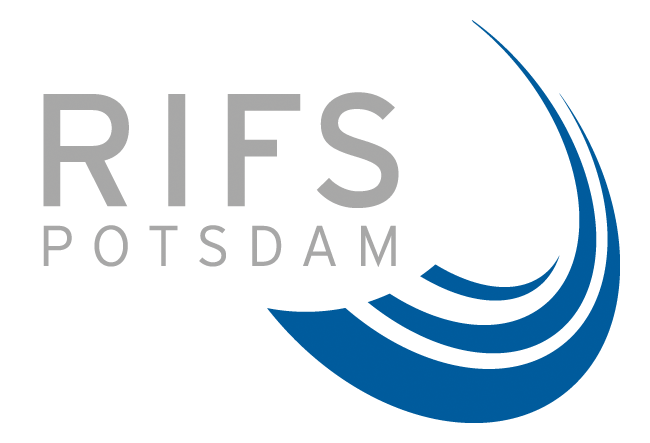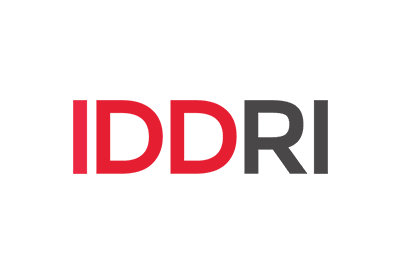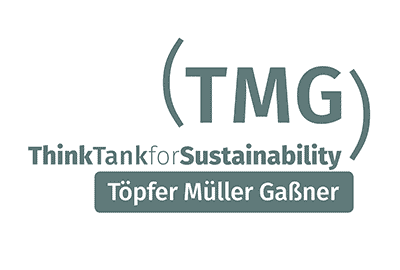More than 40 international scientists, policy-makers and civil society representatives got together at the IASS from 8 to 9 October 2018 to discuss a new international dialogue forum for regional ocean governance. The forum, called the Marine Regions Forum, will be a multi-stakeholder platform that will bring together different actors including Governments, international organizations, scientists, the private sector, and non-governmental organizations.
By bringing people together, the Forum aims to help develop new solutions to overcome current sectoral approaches in managing the ocean and to transform regional ocean governance towards more integrated and sustainable pathways. The first Marine Regions Forum will be held from 30 September to 2 October 2019 in Berlin, Germany.
At the opening address of the international workshop, Ambassador Peter Thomson, Secretary General’s Special Envoy for the Ocean of the United Nations, emphasized that the international community needs to make accelerated efforts to achieve the Sustainable Development Goals for the ocean as four of the ten Targets under SDG 14 will mature in 2020. In this context, he highlighted the important contribution of the Marine Regions Forum towards SDGs. Ngedikes Olai Uludong, UN-Ambassador of Palau, concurred and stated that “2020 will be the year for Action”. She invited all the participants to move towards implementation of commitments that had been made at different ocean policy fora.
Linking Regions with the Global Processes
As the ocean is connected, no single country can address the issue in the ocean by its own. This is why States have developed and implemented the regional mechanisms for the management of the ocean. Ms. Regina Maria Dube, Director- General for Water management and resource conservation of the German Federal Ministry for the Environment, Nature Conservation and Nuclear Safety, emphasized that Germany has rich experience in regional ocean governance and is ready to support other regions in enhancing regional ocean governance.
Mr. Andreas Papaconstantinou, Head of Ocean Governance, Law of the Sea, Arctic Policy Unit of the European Commission referred to the landmark agreement that the EU and the Arctic partners achieved to prevent unregulated fisheries in the Arctic high seas and underlined the role of regional cooperation in contributing to the global agenda including the Agenda 2030 for Sustainable Development. Ms. Lisa Emelia Svensson, Coordinator of the Marine and Coastal Ecosystems Branch of the UN Environment Programme, stressed that cross-sectoral cooperation is crucial and highlighted the importance of cooperation with the fisheries sector.
The ocean experts suggested for the Marine Regions Forum to bring together case studies from regions to learn from best practices. Throughout the workshop participants also stressed the importance of the private sector in changing current ocean governance mechanisms. By bringing in the private sector to the Marine Regions Forum, it is hoped that new ideas, partnerships and solutions could be developed. New financing mechanisms are also urgently needed to support activities to conserve and sustainably manage the ocean. Further study will be conducted by the project team through stakeholder participation to identify and underpin key session topics to be addressed at the first Marine Regions Forum.
The stimulus for the Marine Regions Forum has emanated from the series Potsdam Ocean Governance Workshops, regular gatherings of renowned international ocean governance experts at the IASS to discuss key challenges for ocean sustainability. The project is funded by the German Ministry of the Environment, Nature Conservation and Nuclear Safety (through the German Environment Agency) and the European Union (through the European Maritime Affairs and Fisheries Fund). The project is implemented through the partnership between IASS, IDDRI and TMG- Think Tank for Sustainability as a contribution to the Partnership for Regional Ocean Governance (PROG).
You can subscribe to the newsletter on PROG from here or to visit the PROG website to get more information on the Marine Regions Forum.

